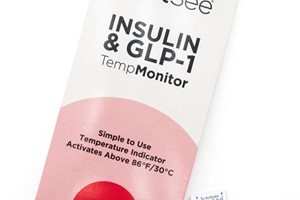A groundbreaking phase 3 clinical trial has unveiled promising results for the investigational monoclonal antibody drug, batoclimab, in the treatment of antibody-positive generalized myasthenia gravis (MG). Conducted across 27 centers in China, the study demonstrated significant improvements in daily activities among patients receiving batoclimab compared to those on placebo.
Published in JAMA Neurology and led by Dr. Chongbo Zhao from the National Center for Neurological Disorders at Huashan Rare Disease Centre, the study enrolled 132 adult patients with generalized MG, predominantly of Chinese Han ethnicity. Notably, nearly all participants were positive for either nicotinic acetylcholine receptor (AChR) or muscle-specific kinase (MuSK) antibodies, which are common triggers of MG symptoms.
The primary outcome of the trial, sustained improvement in Myasthenia Gravis Activities of Daily Living (MG-ADL) scores, was achieved by 58% of patients receiving batoclimab compared to 31% in the placebo group after 6 weeks of treatment. This improvement was noted to be rapid, with noticeable effects observed as early as the second week of therapy.
Batoclimab, a neonatal crystallizable fragment receptor (FcRn) antagonist, demonstrated efficacy comparable to other FcRn antagonists like efgartigimod and rozanolixizumab, with similar reductions in immunoglobulin G (IgG) levels. The study also revealed significant secondary outcomes, including sustained improvement in Quantitative Myasthenia Gravis (QMG) scores and a higher percentage of patients achieving minimal symptom expression.
Despite the promising efficacy, safety considerations remain paramount. While well-tolerated overall, adverse events associated with batoclimab included peripheral edema, upper respiratory tract infections, and urinary tract infections. However, these were predominantly mild or moderate and did not necessitate special treatment. Notably, plasma albumin levels decreased during treatment but rapidly returned to baseline after discontinuation, highlighting the reversibility of the drug's effects.
Dr. Fredrik Piehl, a neurology professor at the Karolinska Institute in Stockholm, Sweden, cautioned that long-term data on the efficacy and safety of FcRn antagonists, including batoclimab, are still needed. Furthermore, the comparison of batoclimab with existing and emerging treatment strategies warrants further investigation to determine the optimal therapeutic approach for MG patients.
The study was funded by Nona Biosciences (Suzhou), with Dr. Zhao disclosing affiliations with the company. Despite these disclosures, the trial's findings offer a ray of hope for the MG community, particularly in regions like China where the disease burden is significant.
As the quest for safer and more effective treatments for MG continues, the results of this phase 3 trial represent a significant step forward in addressing the unmet needs of patients with this debilitating autoimmune condition. Further research, including long-term safety assessments and comparative studies, will be crucial in fully realizing the potential of batoclimab and other FcRn antagonists in revolutionizing MG management.
medscape.com














